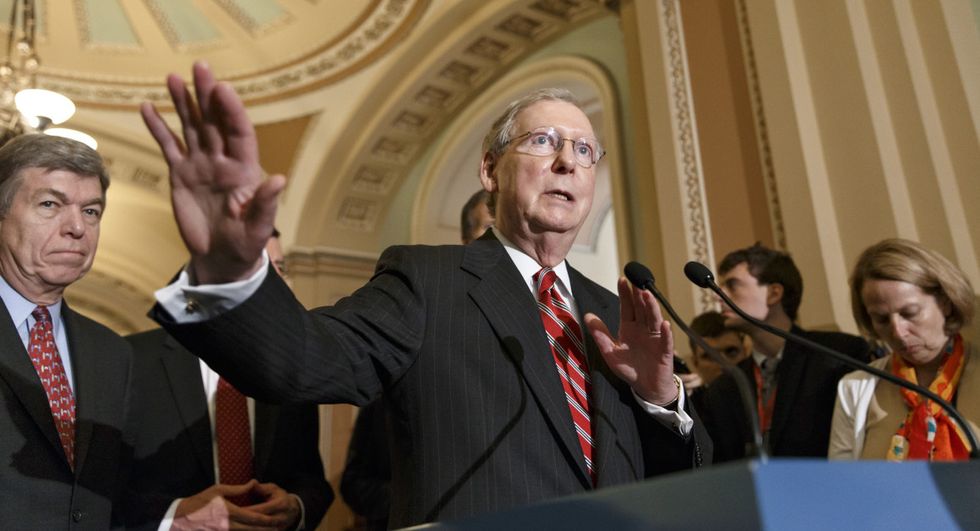In February 2016, following Supreme Court justice Antonin Scalia's death, former President Barack Obama fulfilled his constitutional duty as sitting president to nominate a new Supreme Court justice. The justice #44 nominated to the bench was a man named Merrick Garland, who is the Chief Judge on the United States Court of Appeals for the District of Columbia circuit, a position he has held since February 2013. He, also, has been on that same Circuit Court going back to 1997.
It made perfect sense for Obama to appoint a neutral judge to the highest court in the land; he had a short list of candidates that his administration vetted thoroughly, and settled on Garland. In March 2016, Obama formally nominated Garland. However, Senate Majority Leader Mitch McConnell refused to EVEN hold hearings to confirm the D.C. Chief Judge to replace Scalia's seat because "it was during an election year, and that the nomination should be left to the next president."
One problem with that: though it is "unlikely" the U.S. Senate is willing to confirm Supreme Court nominations during an election season, there is an established precedent for a Supreme Court nomination to happen, as it has happened eleven times in the last year of a president's term.
The reason why this is so relevant today is because, recently, Supreme Court Justice Anthony Kennedy retired from the Supreme Court, leaving yet another vacancy in the court that needs to be replaced, and it is now President Trump's turn to nominate the next Supreme Court Justice, with the Republican controlled U.S. Senate to confirm the next Justice.
This is an election year, where 35 Senate seats are up for election, along with all 435 seats in the House of Representatives. These midterm elections could shape not only the legislative agenda, where an overwhelming Democratic victory would make Trump's agenda much more difficult to pass, but also the Supreme Court for decades to come.
If we were to use McConnell's logic following the death of Antonin Scalia in 2016, the next hearing for Trump's nomination should not be held until the assembly of the 116th Congressional Assembly, whereupon the next nomination to the Supreme Court should be heard upon by new members of the Senate.
This isn't about what is constitutionally right or wrong, this is about holding a politician to his word that Supreme Court candidates should be nominated by incoming presidents AS WELL as being confirmed by incoming senatorial members.











